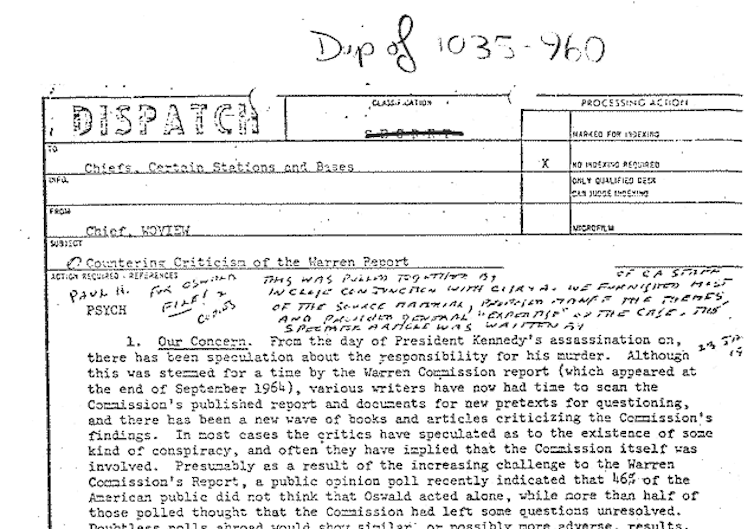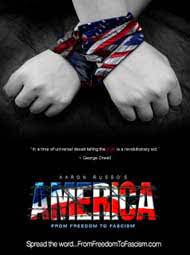There’s a conspiracy theory that the CIA invented the term ‘conspiracy theory’ – here’s why
The more moderate version has been particularly popular in recent years for two reasons. First, it is very easy to disprove the more extreme claim that the CIA actually invented the term. As a search on Google Books quickly reveals, the term “conspiracy theory” emerged around 1870 and began to be more frequently used during the 1950s. Even die-hard conspiracy theorists have a hard time trying to ignore this. Second, the more moderate version received a big boost in popularity a few years ago when American political scientist Lance DeHaven-Smith propagated it in a book published by a renowned university press.
Smoking gun
Although they make differing claims about the origin and development of the term, the proponents of both versions invariably point to an official CIA document called Concerning Criticism of the Warren Report as their smoking gun. It was released in 1976 after The New York Times requested it under the Freedom of Information Act.
The document expresses concern about the considerable number of people who doubted the official investigation into Kennedy’s murder, the Warren Commission, which found that Lee Harvey Oswald acted alone. It also aims to equip CIA contacts with arguments against those who challenge the findings and the official version of the event. For example, it emphasises that nobody in their right mind would have chosen someone as unstable as Oswald as a pawn in a larger plot. And it points out the logical fallacies of these alternative accounts.

One may find the CIA’s attempt to influence public opinion problematic. But there is not a single sentence in the document that indicates the CIA intended to weaponise, let alone introduce the term “conspiracy theory” to disqualify criticism. In fact, “conspiracy theory” in the singular is never used in the document. “Conspiracy theories” in the plural is only used once, matter-of-factly in the third paragraph:
Conspiracy theories have frequently thrown suspicion on our organisation, for example, by falsely alleging that Lee Harvey Oswald worked for us.
The authors of the document deploy the term in a very casual manner and obviously do not feel the need to define it. This indicates that it was not a new term but already widely used at the time to describe alternative accounts. At no time do the authors recommend using the label “conspiracy theory” to stigmatise alternative explanations of Kennedy’s assassination. This suggests that the term had not yet acquired the same level of negativity it possesses today.



